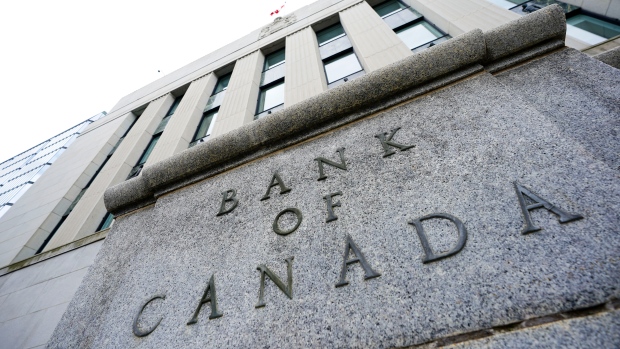The Bank of Canada will make its final rate increase in October after a pause next week, says Goldman Sachs Group Inc.
Why is Goldman Sachs announcing this instead of Tiff Macklem??
Jayzuz.
For all the Americans that own investment property in Canada 🙃
There’s been an awful lot of final rate hikes
The Final Last Rate hike - Goodbye Forever Final Live Tour, “We’re really retiring after this one” ultimate final tour
Why the fuck another hike? The country’s economy had a net regression for the first time in years. Houses, food and rents prices are unhinged. Another hike won’t do anything to help this.
Houses, food and rents prices are unhinged.
Higher interest rates lower inflation. That is why the BOC has been rising them
The country’s economy had a net regression for the first time in years
The main goal of central banks is keeping inflation around 2% per year, even if that causes a recession.
Higher interest rates lower inflation. That is why the BOC has been rising them
Unless it is specifically interest payments that are causing inflation to rise…
I addressed that here.
Interest rates don’t unilaterally fix inflation though, which the BoC is either too stupid to admit or too reckless to care.
Raising interest rates won’t fix inflation driven by gas prices.
Raising interest rates won’t fix inflation driven by gas prices.
Raising interest rates will not reduce the price of gas. However, it will reduce inflation in other ways. Higher interest rates decrease the demand for credit and encourages people to pay back their debts faster, if they can. This deleveraging reduces economic activity in other areas, easing demand and thus reducing inflation.
I am not an economist, but I won’t pretend to know more than the BoC either.
I wouldn’t undercut yourself so much - they have more experience but every situation is different. Inflation in July was largely due to increased mortgage payments (2.4% if you exclude mortgage increases from rate increases). So when the only knob they have can also cause a bigger issue, it’s fair to criticize that they are just going with the flow and praying. If you jump from 0.25 to 5 in such a short time frame, you just worsened inflation on mortgages while improving everything else to the point where it might all cancel out.
They are absolutely flying by the seat of their pants and throwing the average worker under the bus.
Higher interest rates decrease the demand for credit
Indeed. Which is why it is the reactionary response to inflation, which comes with increasing demand for credit. That’s just basic supply and demand and the market’s quest to find equilibrium.
The trouble we’re in is that “The mortgage interest cost index (+30.6%) posted another record year-over-year gain and remained the largest contributor to headline inflation.” The higher the interest rates go, the higher the inflation, the greater demand for credit, the higher the rates go to try and quash that increase in demand, the higher the inflation goes, the higher the… A classic inflationary spiral.
The higher the interest rates go, the higher the inflation, the greater demand for credit, the higher the rates go to try and quash that increase in demand, the higher the inflation goes, the higher the… A classic inflationary spiral.
You got it wrong at the point where higher interest rates increase demand for credit. It is the other way around: when interest rates are high, fewer people want to go into debt. On the contrary, not only fewer credit products are purchased, but also people try to repay their existing debts faster.
So while there is a temporary increase in mortgage repayments of existing mortgages, fewer new mortgages are signed and the demand for other products and services is also decreased because the money people spend in repaying debt is money they are not spending elsewhere.
I hope it makes sense.
You got it wrong at the point where higher interest rates increase demand for credit
Huh? Like I said, inflation increases demand for credit. Debt shrinks under inflation, so it becomes more compelling to take on debt in an inflationary environment. That is why interest rates rise alongside inflation. Interest is the cost of money, so when demand for money increases, the cost of money rises to maintain equilibrium. Same reason why, all else equal, the cost of bread increases when demand for bread increases. Basic supply and demand.
fewer new mortgages are signed
If you can get inflation under control then debt becomes far less interesting, certainly. But if those interest costs are responsible for driving inflation, then you can find yourself in an interesting feedback loop where taking on debt remains compelling no matter how high rates go. The higher the rates, the higher the inflation.
Huh? Like I said, inflation increases demand for credit. Debt shrinks under inflation, so it becomes more compelling to take on debt in an inflationary environment.
Sorry, I must have misread it. I agree that nominal demand for credit increases under an inflationary environment, but only under the condition that interest rates stay constant. Which they don’t, because central banks intervene. I hope we agree so far.
That is why interest rates rise alongside inflation
As I understand it, the interest rates of e.g. mortgages are (rather) indirectly set via the overnight lending rate of the BoC. In other words, mortgages rise because the BoC rated increased its rates. And that in turn happens because the BoC knows that increasing the cost of money lowers demand.
The effect of this intervention means that inflation-adjusted demand for credit today is lower than it was before the rate hikes started.
Same reason why, all else equal, the cost of bread increases when demand for bread increases. Basic supply and demand.
Credit is not a free market thanks to central banks. That is why they were created in the first place.
But if those interest costs are responsible for driving inflation, then you can find yourself in an interesting feedback loop where taking on debt remains compelling no matter how high rates go.
In theory, yes, that could happen. In practice, high enough interest rates asphixiate demand: people have less amount of money to spend on anything other than servicing their debt, causing unprofitable businesses to go under due to lower demand and their inability to access cheap credit, forcing businesses lay off their staff, which means that people stop being able to pay their mortgages, leading to foreclosures, and then a self-reinforcing slump of home prices.
This has happened many times before and it is happening now.
deleted by creator
Inflation isn’t determined solely by mortgages.






